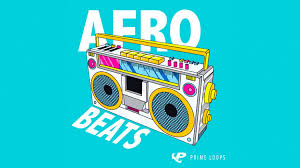
Admin
May 22, 2025
The State of Afrobeats in 2025: Global Groove, Local Roots
Afrobeats is no longer a wave—it's the tide. Over the past decade, this vibrant music genre has surged from Nigeria's street corners and Lagos nightclubs to headline slots at Coachella, Billboard Hot 100 placements, and collaborations with global superstars. In 2025, Afrobeats isn't just a cultural export; it's a dominant force reshaping the soundscape of global pop music.
From Burna Boy selling out stadiums in Europe and America to Tems co-writing songs for Beyoncé and Rihanna, Afrobeats has become a central pulse in the music industry. Its rise has mirrored the broader push for cultural equity, where non-Western artists are no longer trying to “break into” global markets—they are the market.
International collaborations are now common. Artists like Wizkid, Rema, Asake, Ayra Starr, and Tyla (from South Africa, riding the Amapiano-Afrobeats fusion wave) are blurring the lines between genres. Latin trap, R&B, reggae, and even K-pop have taken notes from Afrobeats’ percussive bounce, melodic cadence, and infectious rhythm.
Yet, despite this global appeal, Afrobeats remains deeply rooted in African culture. It’s a genre that speaks Yoruba, Pidgin, Twi, and other African languages with pride. It doesn’t dilute itself to be palatable—it amplifies its roots and challenges the rest of the world to meet it there.
It’s important to clarify: “Afrobeats” is not a monolith. The term itself, popularized by the UK media in the early 2010s, is often confused with “Afrobeat” (the genre pioneered by Fela Kuti). Afrobeats (with an s) is more of an umbrella—an eclectic mix of highlife, dancehall, hip hop, R&B, and more, all filtered through African innovation.
In 2025, we’re witnessing even more fragmentation and fusion:
Afro-fusion has become a dominant sub-style, with artists like Burna Boy leading its evolution by blending dancehall, reggae, and hip-hop into the traditional Afrobeats structure.
Amapiano influence has swept West Africa, with artists incorporating its slowed-down, piano-heavy grooves into traditional Afrobeats.
Alté—Nigeria’s alternative music scene—is blossoming further, creating a niche for introspective, genre-bending sounds championed by artists like Cruel Santino, Amaarae, and Odunsi The Engine.
The genre is evolving in the same way hip-hop did in the '90s and early 2000s: diversifying, regionalizing, and becoming impossible to define with one sound or one face.
Afrobeats’ commercial infrastructure has matured. Global labels like Sony, Universal, and Warner have offices in Lagos and Accra. Nigerian streaming platforms are innovating locally to better monetize African music, and platforms like Audiomack and Boomplay continue to be instrumental in pushing emerging talent.
More importantly, Afrobeats is no longer reliant on international cosigns to validate its relevance. Local stars are becoming global brands in their own right. Touring, merchandising, and DSP placements are translating to real revenue—and real leverage for African artists.
Afrobeats has also become a cultural vehicle. The fashion, slang, dance styles, and aesthetics that accompany the music are influencing everything from TikTok trends to luxury brand campaigns. African youth culture—unapologetic, stylish, bold—is setting global trends rather than following them.
Social media continues to play a pivotal role. Songs go viral not just because of label-backed campaigns but because everyday users are dancing, lip-syncing, and memeing them into global consciousness.
In 2025, Afrobeats is not slowing down—it’s leveling up. Expect:
More pan-African collaborations: bridging West, East, and Southern African scenes.
Afrobeats in new languages: French, Swahili, Arabic-speaking artists embracing the sound.
African festival circuits: Homegrown festivals like Afronation and Detty December will continue to rival international ones in scale and hype.
Film and TV crossovers: Soundtracks for Nollywood and Netflix African Originals are increasingly tapping Afrobeats stars.
The biggest change? The rest of the world is no longer asking what is Afrobeats. They’re asking what’s next.
Final Thoughts
Afrobeats in 2025 is a living, breathing celebration of African excellence. It’s music that makes you move, but it’s also music that’s moving cultures forward. Whether it's booming from car speakers in Lagos traffic, blending into the background of a Parisian café, or dominating dance floors in São Paulo and Seoul—Afrobeats is here to stay, and it's writing its own rules.